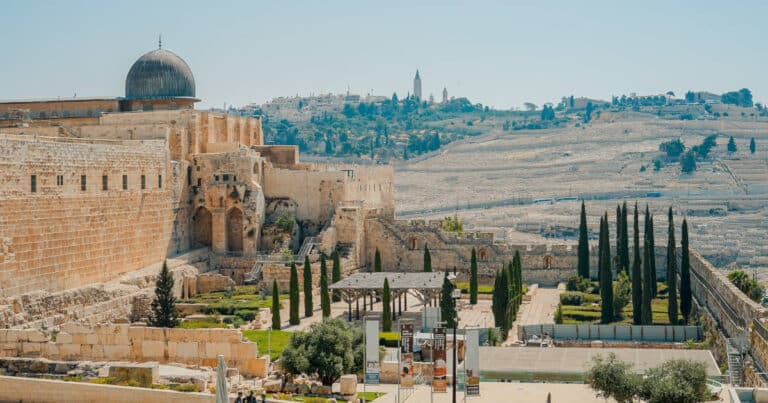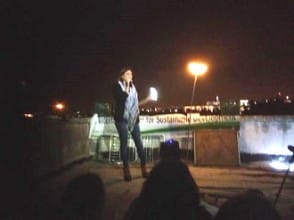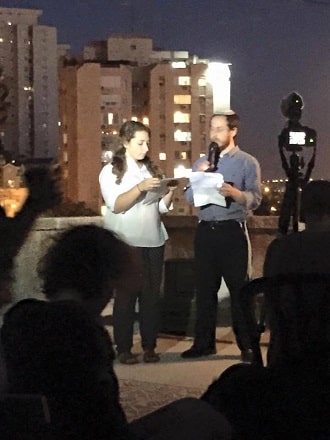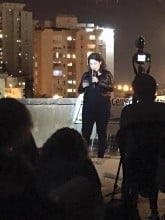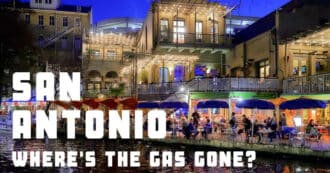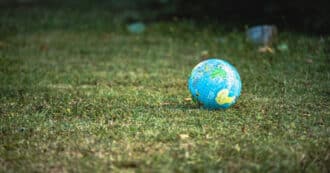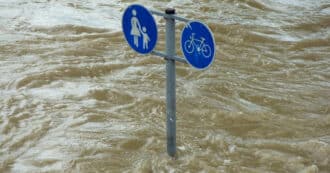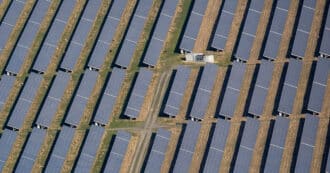By Hannah Kober
On June 4th, 2015, I joined over 60 residents from Israel, and the West Bank for the Interfaith Center for Sustainable Development’s Interfaith Eco Slam, held in Hebrew, Arabic, and English. The diversity of voices present and the multiple social and political angles that were mentioned made it particularly unique. What made the slam especially interesting was Jews, Muslims, and Christians, Israelis and Palestinians, could come together to share religious-inspired poetry on the ecological crisis facing all of us.
As one of the ICSD event organizers, Nadav Slovin, wrote, “this event revealed the strength of desire within many people living on this land to connect and reach beyond themselves to meet their neighbor. There was great interest and support of the event as well as strong attendance. Most of the presenters spoke on the intersection between sustainability and religion; some compared alienation from nature with struggles to connect to one another peacefully over religious divides.” There are 700,000 Arabs who are Israeli citizens, 2.7 million Palestinians in the West bank, and 1.7 million Palestinians in Gaza, yet Jews and Arabs seldom have meaningful interactions with each other despite living on the same land. For one evening, among a group of 60 people on a rooftop in Jerusalem, something changed.
One participant shared her reactions to the event: “I really realized that I’ve always had a very negative outlook on peace. I guess what tonight made me realize is it starts one person at a time. And it can take years. I really do believe there is room for both of us here, and even though that could take hundreds of years i think it is possible. The hateful Jewish and Arab leaders don’t come from nowhere, they come from a society that’s breeding hate. If we change that society, then the leaders will change. Listen it’s easy to believe it’s impossible because then you don’t have to work on it. But it’s harder to accept that it can happen with a lot of work over years, because that means you have to work. You guys really inspired me tonight! It’s very clear to see that you are all people who see a very big picture.”
The element of listening at the expense of brainstorming had a particular power in creating a sense of productive discomfort. Had the audience had the opportunity to respond to each and every speaker in a public way, it would have been more difficult for most of us to internalize the sincerity of the narratives presented. Although I personally understand a lot of environmental challenges of the region to be inextricably tied to the geopolitical reality, I found some of the more politically-oriented statements to be challenging to swallow (even if I identified with much of what was said). I had to silently acknowledge my requisite privilege when the various Palestinian presenters incurred many obstacles and hours of waiting to get to “my neighborhood.” In my mind, this effectively expanded the concept of respecting “nature” beyond your ever-so-typical image (and unfortunately so) of a deforested area, extinct species, and other natural disasters. The term must accommodate other more-directly-human-made natural disasters such as war, hunger, and intolerance. A number of the speakers touched on the broader impact of said consequential destruction in incredibly thoughtful ways, which made me reflect on the avenues by which solving those problems can have a significant effect on healing our earth, but also can redirect our attention to the ground on which these events are taking place.
Furthermore, it was remarkable to see the extent to which the organizers provided a minimally-wasteful space. Following the directions on Facebook, I brought my reusable water bottle so I could try the refreshments (water in wine bottles, to be exact and charming). Each of the presenters read their pieces off of their phones instead of sheets of paper, which also contributed to the sustainability of the event. These examples demonstrated really simple ways in which events like this one could model responsibility toward the environment. Granted that many of us have wildly different ideas and priorities surrounding that responsibility, the Interfaith Eco Slam created a community of those are at least interested in dabbling in these issues in a critical yet respectful way.

